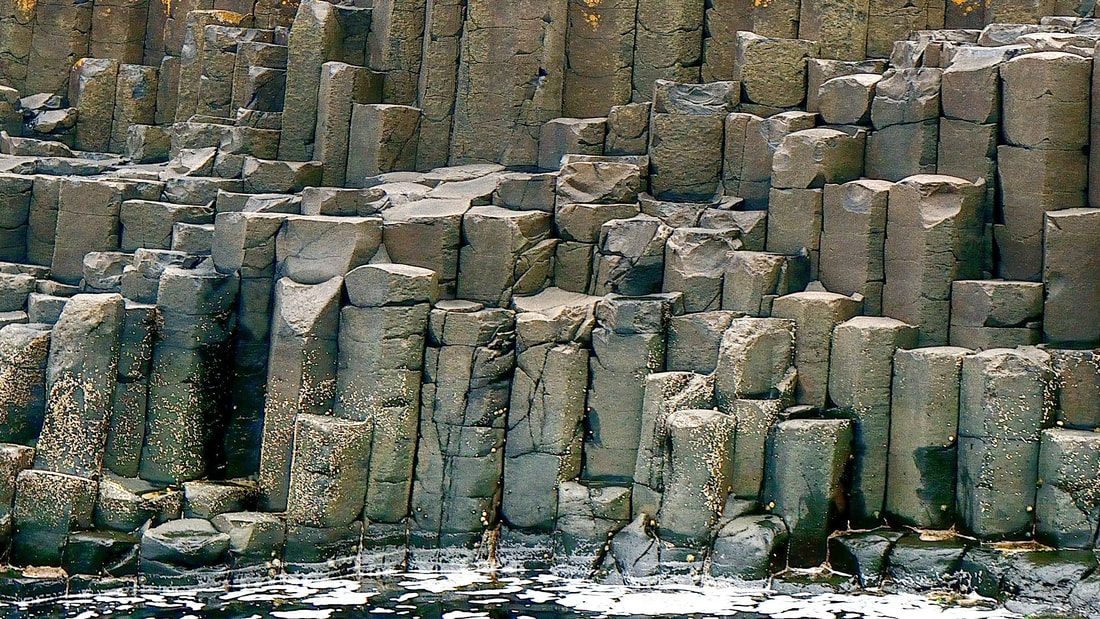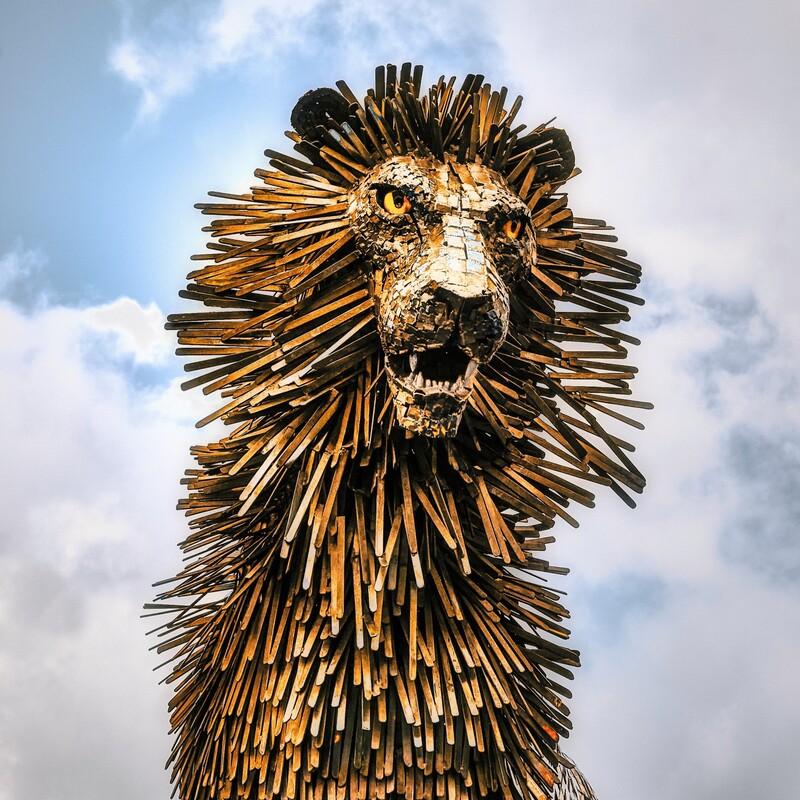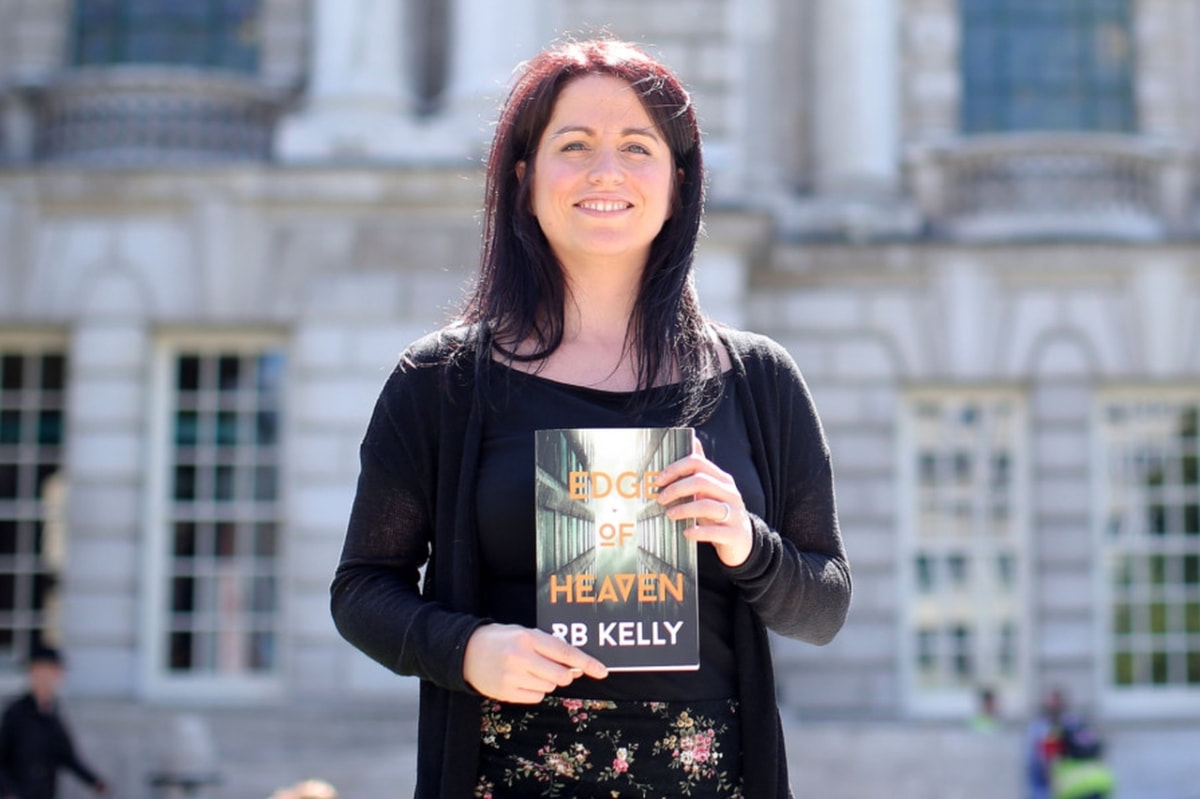Northern Ireland's place in the history and future of speculative fictionAs a Belfast writer, born and bred, I'm proud to be part of the rich tradition of speculative fiction in Northern Ireland. And if you're thinking, "Northern Ireland has a rich tradition of speculative fiction...?" don't worry - you're not alone. We do, but it's not necessarily the first thing people think of when they think about this place. Ulster's hidden sci-fi heritageA number of years ago I was attending TitanCon, a Belfast-based speculative fiction convention, and, on a panel on Irish sci-fi writing, the question was posed: why does Northern Ireland seem to produce so many science fiction and fantasy writers? Several years later, during promotion for the launch of my novel Edge of Heaven, two themes kept cropping up, time and time again. The first centred around how unusual it was to find a woman writing sci-fi. I have no idea how the existence of Ursula K Le Guin, Octavia Butler, Margaret Atwood - even Mary Shelley - had apparently passed so many people by, but okay. The second was about how unusual it was to find a sci-fi writer in Northern Ireland. It seems that Ulster's sci-fi heritage is perhaps not as well-known outside of these parts as it is among the Northern Irish spec fic fanbase. A genre without bordersMaybe it's because science fiction and fantasy are inherently nationless genres, but Northern Ireland often doesn't seem to be the first place that speculative fiction fans think of when they think about the work they love. Spec fic novels, short stories and films are more likely to be set in imaginative, far-flung magical realms than on the streets its authors walk day to day, and that seems to break the link between the creator and the place they call home. The God of Small Things, for example, is a novel that couldn't be set anywhere other than the Indian state of Kerala. The setting is inherent to the narrative, the characters, the history and the present in which those characters operate. As such, we have no difficulty in identifying the novel's author, Arundhati Roy, with the place of her mother's birth and where Roy spent the majority of her childhood. Likewise, Irvine Welsh and Scotland or Maeve Binchy. and Ireland. Ursula K Le Guin, on the other hand is, probably more closely associated with the fictional archipelago of Earthsea than the west coast of the USA. Think of Margaret Atwood, and you're probably thinking of Gilead, not Toronto. Because science fiction authors operate in worlds of the imagination, they're often more difficult to connect them to their real-world homes than to the universes they've created. Of the authors I'm about to list, few have set novels in Northern Ireland. I submit that makes it more difficult to locate them, in a genre without borders, as specifically Northern Irish writers. Because science fiction authors operate in worlds of the imagination, they're often more difficult to connect them to their real-world homes than to the universes they've created. CS LewisFamously played on the big screen by a Welshman with a cut-glass English accent, you'd be forgiven for missing that the man who created Narnia was a Belfast lad, but he absolutely was. I used to live around the corner from the house he grew up in. To be fair, there wasn't actually any such place as Northern Ireland when he was born in 1898 (partition was still another 23 years away). To be fairer, he left Ulster at the age of nine and spent more or less the rest of his life living in various different English schools and colleges. But his father remained in the Belfast family home until his death in 1929, and Lewis returned frequently: he even honeymooned in the Co Down village of Crawfordsburn after his marriage to Joy Davidman. And he definitely considered himself Irish. Writing to his father in 1913, he talks about the debt his writing owes to “being born in a race rich in literary feeling and mastery of their own tongue.” (Collected Letters, Vol.1). The landscape of Northern Ireland is woven throughout Lewis’ Narnia. David Clare’s essay CS Lewis: An Irish Writer points out the many similarities between key landmarks in both lands: from the Bight of Calormen mirroring Belfast Lough, and Cair Paravel reflected in Belfast Castle and Dunluce Castle. The hills of County Down, a place beloved by Lewis, and which he visited as often as he could throughout his life, could easily be the hills around his famous fantasy castle. It’s also possible, as his biographer Walter Hooper relates in C.S. Lewis: A Companion & Guide, to see stories from the Ulster Cycle and other Irish myths and legends peeking through his Narnian adventures. Belfast is justly proud of our internationally beloved literary son: we’ve got a whole square dedicated to him and his characters, not far from where he grew up. The city also hosts an annual CS Lewis festival, celebrating his life and legacy through a series of literary events. Fun fact: I read my fiction in public for the first time ever as part of the 2014 festival. Lewis is one of the best-known writers in the history of Northern Irish speculative fiction. But he’s in excellent company. Ian McDonaldQuick, name a major science fiction literary award. Ian McDonald has almost certainly won it (or at the very least been shortlisted for it) throughout his decades-long writing career. He also lives not that far from the Lewis family home. He was born in Manchester, to be completely accurate, but he’s lived in Belfast since the age of 5, and grew up with the Troubles. His narratives are set everywhere from near-future India (River of Gods) and Brazil (Brasyl) to Mars (Desolation Road) to the moon (the Luna series), but Northern Ireland gets a look-in too: Sacrifice of Fools lands aliens in Belfast, and the protagonist of two of his Chaga series novels, Gaby McAslan, is an Ulsterwoman. Living in Belfast, he says, is “a perfect preparation for life in the twenty-first century […] It’s one of those places that’s kind of on the periphery of things. In many ways, it’s one of the least science fictional places in the world to grow up in. In another sense, it’s the perfect preparation for life in the twenty-first century—living through thirty years of civil, religious, and political violence is fairly good prep for the way I feel the twenty-first century is going to go.” That was back in 2012. So… yeah. He’s not wrong so far. James WhitePerhaps best known for his 12-book Sector General series, James White was a science fiction fan before he became a science fiction writer. Along with fellow SF enthusiast Walt Willis, White produced the fan magazines Slant and Hyphen¸which published works by fellow Northern Irish writer Bob Shaw, amongst other stellar sci-fi authors. Born and raised in Belfast (barring a short stint in Canada), White worked in the city’s iconic docks (built the Titanic, don’t you know – and if you didn’t, don’t worry. We’ll tell you – over and over again) while writing in the evenings. His first short story, Assisted Passage, appeared in the January 1953 edition of New Worlds, and his first novel followed four years later. Titled The Secret Visitors, it’s the first science fiction novel to feature locations from Northern Ireland. Jo ZebedeeThe Secret Visitors may be the first, but it's not the last. There’s Sacrifice of Fools, of course, but there’s also Jo Zebedee, a writer from Co. Antrim who’s making a habit of giving this land a dose of the dystopian. Her Inish Carraig sees Belfast levelled by alien invasion. Into A Blood Red Sky turns a lens on our climate-changed near future. And (my personal favourite) Waters And The Wild follows a troubled young woman through the Glens of Antrim as she struggles to escape what could be the grips of madness – or could be a fairy curse. Jo also established and runs Otherworlds NI, a group that connects speculative fiction writers in and from Northern Ireland. There are... quite a lot of us, let's just say that. Other Worlds in NIAnd then of course there’s Jan Carson, whose Northern Irish brand of magical realism has been delighting literary critics the world over for several years now. Her second novel, The Fire Starters, won the EU Prize for Literature – Donal Ryan describes it as 'Spectacular. At once grittily real, wildly magical and insanely alluring - a siren-song of a novel.’ In 2023, she was elected a Fellow of the Royal Society of Literature. Garth Ennis, whose work you’ve definitely read if you’ve ever interacted with comics or graphic novels in the slightest over the past few decades, was best friends with my kids’ childminder back in his Northern Irish schooldays. He’s a US citizen now, and you’re most likely to be familiar with him through the likes of The Boys, Preacher, or Judge Dredd, but his first published work, Troubled Souls, is set in 1980s Belfast and the Troubles loom large over its plot and protagonists. Byddi Lee’s Rejuvenation trilogy might not feature Northern Ireland, but her contemporary novel March to November is set in the streets of a post-conflict Belfast. A native of Armagh, she’s established a popular flash fiction event in her home city, which has produced two anthologies to date. Northern Ireland is a tiny little corner of a tiny little island, with a population of under 2 million. I’d have to say we’re punching above our weight on the SFF scene. In his 2019 anthology A Brilliant Void, writer and academic Jack Fennell argues that a literary tendency to misclassify Irish science fiction as part of the country’s folkloric tradition has led to the under-recognition of many important early SFF works by Irish authors. I’d suggest that something similar is going on with Northern Ireland, but in a slightly different way. Just as Northern Irish cinema gets conflated with “films about the Troubles”, I suspect that the concept of “Northern Irish” that resonates in a wider global context is not in any way linked to “science fiction and fantasy.” We are Titanic, Troubles and complicated politics that take too long to explain. So writers who don’t explicitly engage with those things don’t get linked to Northern Ireland in the popular collective consciousness. Northern Ireland is Titanic, Troubles and complicated politics that take too long to explain. So writers who don’t explicitly engage with those things don’t get linked to Northern Ireland in the popular collective consciousness. The Trouble(s) With NI Speculative FictionI was born and grew up in Belfast throughout the 1970s and 1980s, when the conflict was in full force. It was normal for me to see armed soldiers on the streets of my city. Bags were searched for incendiary devices on the way into shopping centres and we had to pop the boot of the car and let police officers have a look inside if we wanted to park in a multi-story car park. Bomb scares closed out the city centre on the regular; actual bombs were not a rare event. A huge explosion rattled my childhood home one evening as a local forensics facility was completely destroyed. The power failure that followed got me out of my homework for the week.
Years later, after the Good Friday Agreement had brought the violence to a tentative close, my young niece was staying with me for a sleepover. Close to midnight, I was woken by police knocking on my door: there’d been a suspicious device reported in the back yard of one of the houses on the street and we needed to evacuate. (It turned out to be an active pipe bomb, but it was defused before it could go off.) I woke up the five-year-old girl in my spare room and explained we’d have to decamp to Nana’s house. She – born seven years after the ceasefire – was terrified. Of course she was. That’s an appropriate reaction to being evacuated from your home in the middle of the night. That was when I realised how insane it was that this kind of thing was basically no more than a massive inconvenience in my mind. That was my normal. And, rightly or wrongly, it’s part of the DNA of this place – and it’s part of my identity as a writer. I've never written a Troubles novel. I doubt I ever will. And yet... Northern Ireland, in all its uneven history, is there in my work just the same. It's in the unsettled, dangerous backdrop to Edge of Heaven and On The Brink. It's woven through the insurgent history of both novels. When you read science fiction, you’re reading about its author’s lived experience, transplanted onto a fantastical world. And that, to me, makes the speculative fiction of this place I call home so fascinating. Northern Irish science fiction isn't so much a category - it's a mood, of sorts. A shared history that rises from a nation of storytellers. A generational, genre-ational link. I'm proud to be part of that chain.
0 Comments
Leave a Reply. |
Tips, tricks & advice to help your writing shineCategories
All
Blog updates on the first of every month.
|





 RSS Feed
RSS Feed